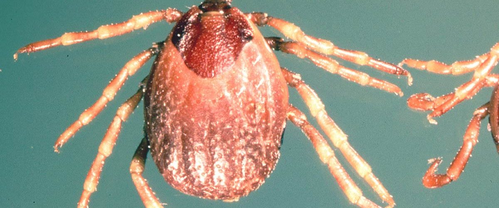
New Delhi, June 25 (IANS) Increased active human, animal, and entomological (of insects) surveillance is needed to keep the deadly Crimean-Congo haemorrhagic fever (CCHF) at bay, said health experts on Tuesday, as the disease reportedly infected 13 in Pakistan.
The CCHF is caused by a tick-borne Nairovirus.
Animals such as cattle, goats, sheep, and hare carry the virus, which can be transmitted to humans through tick bites or contact with infected blood or tissues during and after slaughter.
The virus, known for its high fatality rate, can cause severe hemorrhagic fever, leading to symptoms like high fever, muscle pain, dizziness, bleeding from the nose, etc.
“The recent spread of the Congo virus in Pakistan is concerning and calls for stringent control measures in India as well,” Dr Nidhin Mohan, Consultant, Internal Medicine, Narayana Health City, Bengaluru, told IANS.
“We must heighten surveillance, particularly in border areas, and educate the public on prevention methods such as using insect repellent and wearing protective clothing as well as cleaning any wound that has been caused by cattle; goats etc,” he added.
According to the World Health Organisation (WHO), CCHF has a mortality rate of up to 40 per cent and is difficult to prevent or treat.
It is also on the WHO’s list of ‘priority’ diseases and was found last year in Eastern Europe, France, Spain, and Namibia.
In 2023, CCHF affected hundreds and caused deaths in Iraq and Pakistan.
“Clinical features are very similar to dengue (high-grade fever, vomiting and headache). In India, overlapping symptoms of hemorrhagic fevers like dengue, Kyasanur forest disease, Hantavirus hemorrhagic fever, and other diseases (Malaria, meningococcal infections, and leptospirosis) are of major concern,” Dr Dhiren Gupta, Co-Director PICU, Paediatric Pulmonology and Allergy, Sir Ganga Ram Hospital, told IANS.
The experts called for early diagnosis through PCR testing, as ignoring symptoms can be deadly.
“Early diagnosis of CCHF is critical for the management of patients, to prevent the transmission of the disease to the community and potential nosocomial infections,” Dr Dhiren said.
General supportive therapy is the mainstay of patient management in CCHF.
Intensive monitoring to guide volume and blood component replacement is required, the doctor said.
However, “there is no need not to panic. The government should start doing active human, animal, and entomological surveillance. Isolation and treatment of cases following universal precautions, contact tracing, and monitoring contacts, spraying cattle in the affected area with anti-tick agents, spraying human dwellings with residual sprays, and communicating the risk to the public should be done,” Dr Dhiren said.
Strict measures and awareness can help remove the risk and control the spread of this deadly virus, the experts said.
–IANS
rvt/rad




